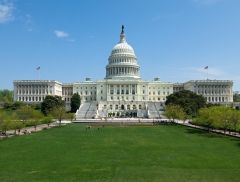 Earlier this month the Progressive Congressional Caucused released principles for guiding trade negotiations intended to “create a net increase of good American jobs, spur more balanced trade between partners, and improve governance, public health, and environmental protections around the world.” The full Principles for Trade are here (PDF). The section titled “Secure Affordable Access to Essential Medicines and Services” follows:
Earlier this month the Progressive Congressional Caucused released principles for guiding trade negotiations intended to “create a net increase of good American jobs, spur more balanced trade between partners, and improve governance, public health, and environmental protections around the world.” The full Principles for Trade are here (PDF). The section titled “Secure Affordable Access to Essential Medicines and Services” follows:
Trade agreements must safeguard affordable access to medicine for patients by preserving the ability of governments to negotiate reduced drug prices for public health care systems.
Governments must maintain the ability to direct public health policies and programs to meet the needs of all patients, but especially the most vulnerable. Trade deals should not impose requirements that prevent countries from using compulsory licensing, parallel imports, or pricing mechanisms designed to provide access to essential medicines. Congress and state legislatures must retain their right to make prescription drugs more affordable through price negotiation and other means.
Trade agreements must not establish unfair drug patent protections that delay access to affordable generic drugs.
The production of generic pharmaceuticals is an important tool for increasing access to life-saving medicines in the U.S. and abroad. The WTO Agreement on Trade-Related Aspects of Intellectual Property Rights (TRIPS) attempts to balance the patent rights of pharmaceutical corporations with the need to expand access to life-saving drugs. New trade agreements should not tip that balance further toward the monopoly rights of pharmaceutical corporations, delaying the entry of lower-priced generics into the market through the inclusion of TRIPS-plus provisions to extend or require patent periods, allow firms to continually renew patent licenses, or permit the withholding of data.
Agreements must balance affordability with innovation.
Partner nations should maintain the ability to set domestic patent license periods, and reward or revoke patents. This respects a nation’s right to both incentivize innovation and support generic drug competition to make life-saving medicines more affordable and accessible.




